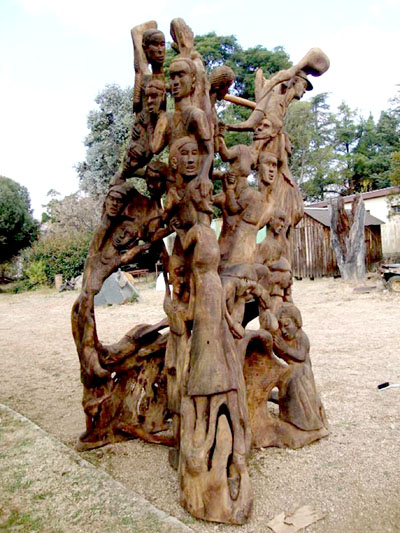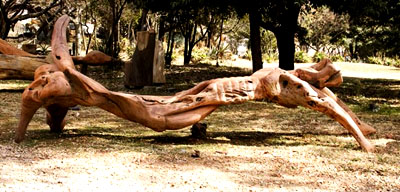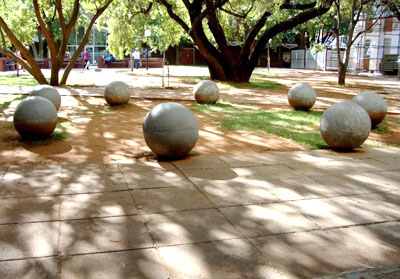 |
|
Noriah Mabasa, Unity is power: Let us be united (2010), fig wood, 3200 x 1700 x 1400 mm.
|
 |
|
arwi Ragimana, Baboon (2010), African wattle wood, 1150x3400x1100mm.
|
 |
|
The philosophers’ circle.
|
A year ago the University of the Free State (UFS) received a grant from the National Lottery Distribution Trust Fund (NLDTF) to implement a project that has allowed the UFS to commission artists to create a number of sculptures for the Main Campus in Bloemfontein.
The planning for the project is at an advanced stage and the university looks forward to the installation of the first sculptures in October 2010.
Renowned Venda artist Noriah Mabasa has created a three-metre-high wooden sculpture, “Unity is power: Let us be united”, to be placed outside the new computer laboratory near the UFS Sasol Library. The work consisting of several grouped figures celebrating the coming together of many diverse people.
Another artist from Venda, Azwifarwi Ragimana, has been working in collaboration with Gallery 181 in Johannesburg to produce sculptural benches for the garden behind the West Block.
Local artists are also involved in this initiative: Jaco Spies, lecturer in the Department of Fine Arts, as well as ceramist Dina Grobler and artists from the Tshiamo Art and Crafts Project will be working on a mosaic at the site of the eight concrete balls at the West Block, known as the “philosophers” circle.’ The project will continue next year and we can expect works from leading South African artists such as Willem Boshoff, Willie Bester and Pat Mautloa.